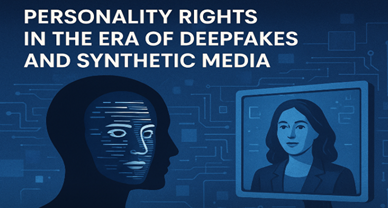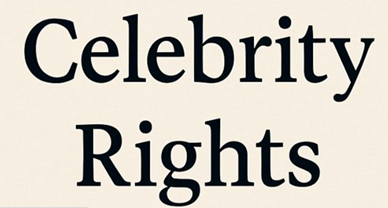Permissibility Waiver Of Moral Rights Under Copyright Regime
Permissibility Of A Waiver Of Moral Rights Of An Author Under The Copyright Regime: Section 57 of the Copyright Act of 1957 covers authors’ special rights particularly, highlighting the importance of expanding such rights beyond solely economic grounds. These moral rights have been enshrined in law and include the right to: claim authorship of a work (the so-called ‘right to attribution’ or ‘paternity right’); and prohibit any distortion, modification, or mutilation of a work that would be detrimental to the author’s reputation (the so-called ‘integrity right’).
These laws are based on Berne Convention Article 6bis, to which India is a signatory. Article 6bis of the Convention fails to establish a period or tenure for an author’s moral rights, leaving it to the discretion of the Convention’s contracting parties. As a result, the lifetime of these rights varies greatly between countries. For example, under the 1988 Legislation of Copyright law in the United Kingdom, it is clearly stated that moral rights for the work exist until the copyright for the work itself exists, but no such provision is provided for under Indian legislation, and the moral rights of an author can be said to exist in perpetuity in India based on the interpretation of the law.
Similar to the legislation in the United Kingdom, an attempt was made in 1994 through an amendment to the Indian Copyright Act to establish such a term and restrict the duration of such Moral Rights in India to exist only till the subsistence of the copyright itself. This modification, however, was repealed as part of the 2012 update to the Indian Copyright Act.
Waiver of moral right of the author permissible?
Moral rights cannot be transferred, although it is unclear if the author can waive his or her rights in the work under Section 21 of the Copyright Act. This point is contentious since the Statute is silent on the subject and relatively few instances address it. It is not permissible to renounce moral rights, nor is it allowed to put in the agreement a phrase declaring that the publisher will not sue or take any action against the author (as it will be hit by certain sections of the Indian Contract Act). The best strategy would be to write an agreement that includes a reasonable severability clause.
Cases
Amar NathSehgal vs. Union of India 2002 SCC OnLine Del 390
Facts:
The plaintiff set out to complete the difficult undertaking after entering into a contract with the Central Public Works Department (defendant No. 2) of the Union of India (defendant No. 1) to make a bronze mural for display at Vigyan Bhavan in New Delhi. Plaintiff finally created an acclaimed piece of creative work presenting itself in the shape of a 140 foot long and 40 foot high mural, displaying a fine balance between cultural and material features in national perspective – its topic being the essence of rural and contemporary India. The painting so made found its true home in the Vigyan Bhawan lobby, directly at its entry, in 1962, and over time gained the distinction of being one of the most important. Mural remained in situ until it was demolished and discarded by the defendants in 1979 during the partial rebuilding of Vigyan Bhawan, without the plaintiff’s permission, approval, or authorization. The plaintiff filed complaints with all parties involved and appealed for the wrong to be righted.
Contentions of the parties: The defendant claimed that the mural was destroyed during a fire in the Vigyan Bhavan. According to Article 6 of the Agreement dated 31.10.1960, the plaintiff assigned his copyrights to the defendants, and having acquired the same, the defendants are free to deal with the mural in issue. The plaintiff acknowledges that he has assigned his copyright to the defendants. At the same time, it is added that, despite the assignment of his copyright, his moral rights, which include the ‘right of paternity’ and ‘right of integrity,’ which are independent of copyright, continue to vest in him because there was no express or implied assignment or waiver of such rights in the said agreement. The plaintiff believes that the defendants cannot apply the arbitration clause since he has fulfilled his contractual commitment and the mural has been displayed for about 18/20 years at Vigyan Bhavan before it was removed.
Issue: Whether the moral rights of the plaintiff was infringed? Can the moral rights of the plaintiff be waived?
Held: The court was emphatic in its analysis of the author’s moral rights and even named them the “soul of his works“. Observing that a privileged relationship exists between a creative author and their work, the court stressed the need to protect an author’s paternity right and integrity right. These rights cannot be negated or waived by the terms of a contract for assignment. Further, the court interpreted the integrity right broadly enough to encompass the protection of India’s cultural heritage; and deemed the mural to be an Indian national treasure and thus applied Section 57 of the act.
Thus, the stowing away of an author’s work, especially in light of its cultural significance, was declared an extreme form of mutilation which contravened Section 57. As such, the court granted a mandatory injunction directing the government to return the mural and pay Sehgal damages of Rs. 500,000.
Sartaj Singh Pannu v Gurbani Media Pvt Ltd2015 SCC OnLine Del 9627
Facts Sartaj Singh Pannu, a film director, is the petitioner in this case brought under Section 9 of the Arbitration and Conciliation Act of 1996 (the “Act”). Pannu seeks injunctions to prevent Gurbani Media Pvt. Ltd. (Respondent No. 1) and its Chairman and Managing Director Mr. Harinder Singh Sikka (Respondent No. 2) (‘Sikka’) from distributing the film ‘Nanak Shah Fakir’ without crediting him as the film’s ‘sole Director.’ On the 15th of January 2013, Pannu and Respondent No. 1 entered into a ‘Service Agreement for Direction’ in New Delhi, under which Pannu was hired as the film’s director.
Issue: The question at issue was whether film directors can be considered authors and waive their moral rights.
Contentions of the parties: Sikka, according to Pannu, exploited him until the film’s completion in October 2013. According to him, Sikka had dishonest motives, as evidenced by the fact that, despite the fact that Pannu began filming the picture as Director in October 2012, the deal was only signed in January 2013. According to Pannu, he was fresh in Mumbai and became a victim of Sikka’s threatening techniques. Sikka, according to Pannu, exploited him until the film’s completion in October 2013.
Sikka referred to an incident at Mullanpur, where some of the film’s shooting took place, in a letter written to Pannu on October 24, 2014, and stated that there were certain financial irregularities that occurred, which compelled Sikka to withdraw Pannu’s authority to sign on cheque books on behalf of the Respondent No. 1 and asked him to concentrate only on direction. At the end of the letter, Sikka instructed Pannu not to “interfere with the film any further,” but promised that “you would be paid your due as a filmmaker.”
Held: Such a waiver would be against public policy because the public has a right to know who directed a film. However, the Court is not willing to go so far as to invalidate a Director’s right to relinquish his right to be acknowledged as such if, for whatever reason, he does not want his name linked with the picture. As long as the waiver is voluntary, it cannot be considered anti-public policy. The necessary revelation of the Director’s name in the application for a censor certificate is sufficient to fulfil the public’s right to know who the Director is. Given that a film director is not recognized as dramatis personae in the same way that a producer (who is recognized as the author of a film) is, a director’s waiver would not adequately answer the question of whether an author can renounce their moral right.
Conclusion
Though moral rights have a broad meaning in India, they have not been fully defined. A reading of Section 57 suggests that the remedies offered therein may not be possible of being waived by an author, given that the Copyright Act was amended in 2012 to allow moral rights to exist even after a copyright has expired. In the foreseeable future, the surrender of moral rights is expected to garner increasing attention. Nonetheless, at a period when piracy is at its pinnacle, the writers should be conscious of any moral rights they may have.
Author: Anuja Saraswat, Coauthor: Meenakshi Ogra Mukherjee, in case of any queries please write back us via email at support@ipandlegalfilings.com or contact us at IP And Legal Filings.




